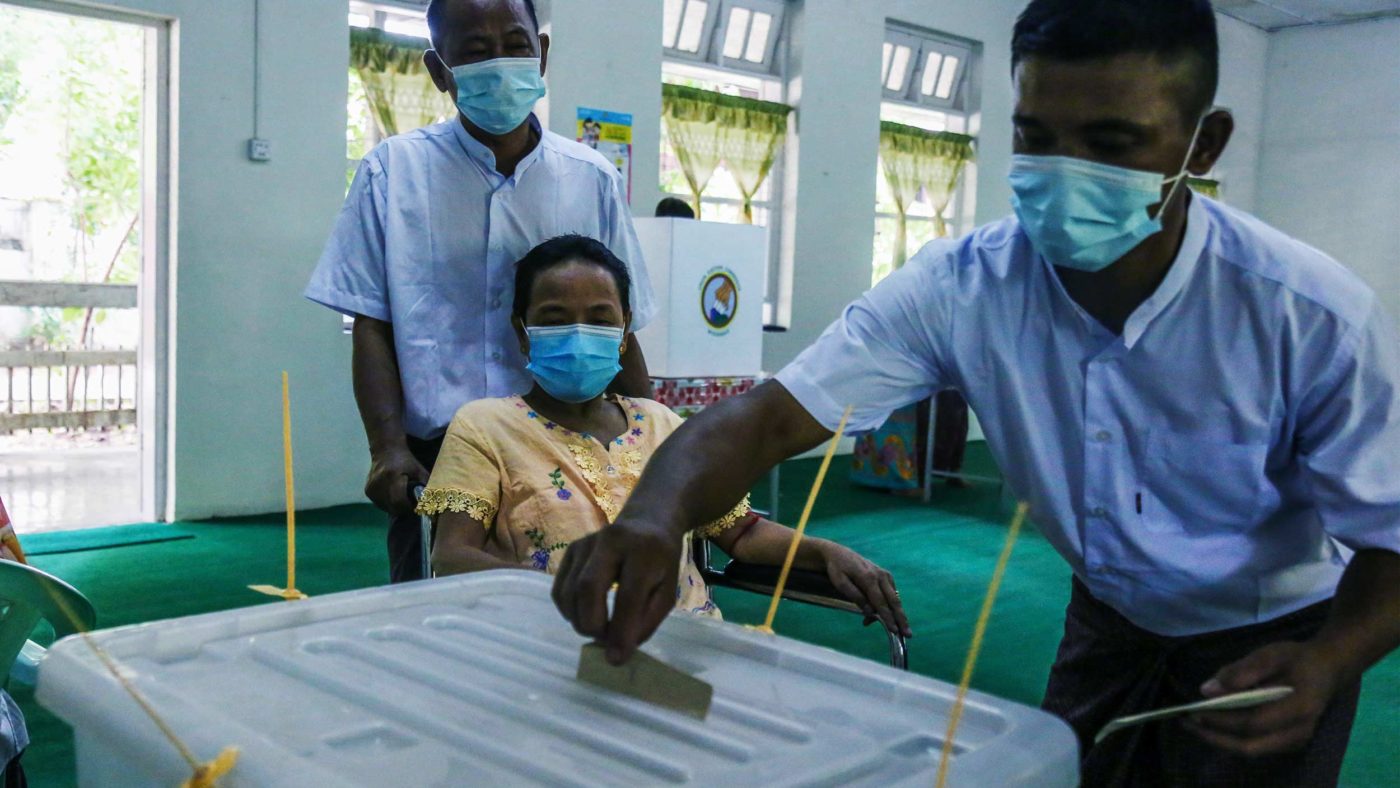On Sunday Burma will head to the polls to vote for the country’s next government. The general election, largely between the ruling National League for Democracy (NLD) and the military-aligned Union Solidarity and Development Party (USDP), comes as Burma is facing a genocide hearing at the International Court of Justice, an active conflict with ethnic insurgents in Arakan State, and worsening case numbers of Covid-19.
On top of those problems, the country’s democracy leaves a huge amount to be desired: minority candidates are being banned, votes suppressed and others simply stopped from voting altogether. From the outside the process may appear democratic, but there is no democracy without full representation and inclusivity.
Burma’s history is one of near permanent civil war. The states and ethnic groups involved in conflict often shift, but the Burmese military’s campaigns against their own people continue without respite. Security has been used as a pretext to suppress voting in ethnic areas, with the Election Commission outright banned voting in parts of Arakan, Kachin, Mon, Chin, Shan, and Bago regions. This is despite the fact that the only actual safety concerns are in northern Arakan State and even there the government should still be able to find ways to ensure the safety and transparency of elections.
The Election Commission has also struck a blow against democracy by disqualifying Muslim candidates based on the flimsiest of charges against their ancestry. While citizenship is viewed globally as a birthright in the international community, Burma has sought to deny full citizenship to many, and disqualified Muslim candidates by falsely claiming their parents were not full citizens at the time the candidates were born.
On top of that, the entire population of Rohingya Muslims has been denied voting rights ,let alone the chance to stand as candidates. Not content with rendering a population stateless, the government now disenfranchises them too. While over 1 million Rohingya have fled genocide in Burma in recent years, hundreds of thousands remain and are denied any say in their future.
All of this is happening as a massive campaign of disinformation, hate speech, and vitriol have spread across Burmese social media and even within political campaigns. The vast majority of this abuse has been targeted against Muslims or used Muslims as a scapegoat against NLD politicians. While the government has used the full force of the law to suppress freedom of speech from peace activists, they have allowed hate speech to go completely unchecked.
While the NLD may be the favorite in the election, it is vital that their victory is met with demands, rather than congratulations, from the international community. Burma can still be the democratic country the world hoped it would become, but only if the new government institutes sweeping reforms.
Voting rights must be preserved and protected for all people. Candidates must never again be disqualified for their religion or ethnicity. And no people should be rendered stateless and without representation to fulfill the racist whims of a junta clinging to its last remnants of power. A new dawn could still break for Burma, but only if the government elected on Sunday shows the courage and conviction that until now have been sorely lacking.
Click here to subscribe to our daily briefing – the best pieces from CapX and across the web.
CapX depends on the generosity of its readers. If you value what we do, please consider making a donation.


